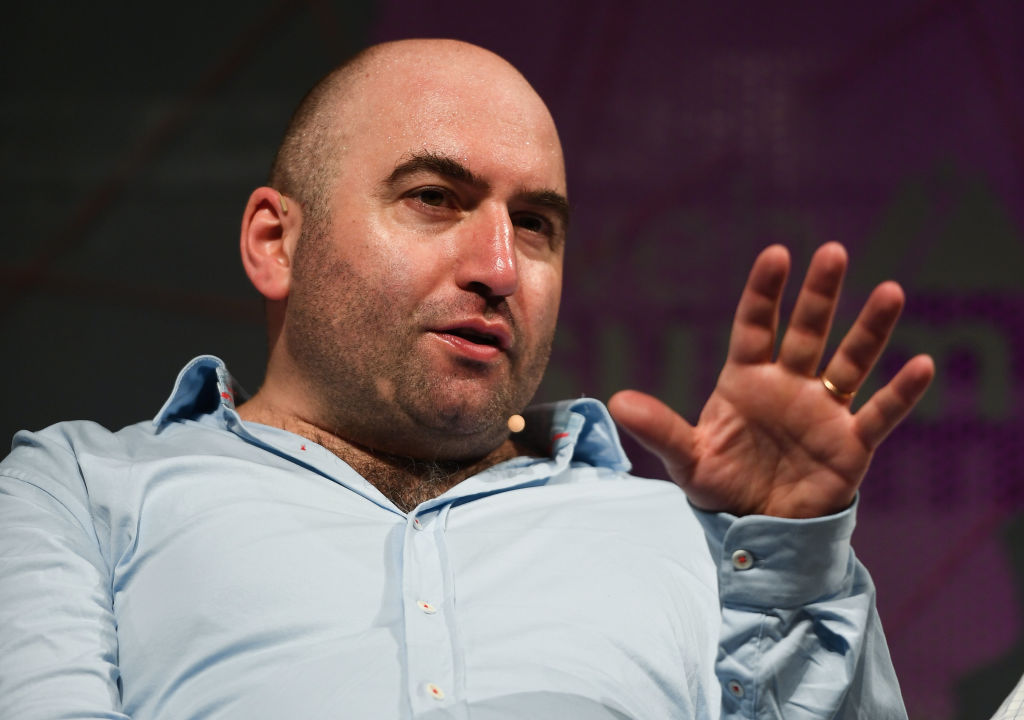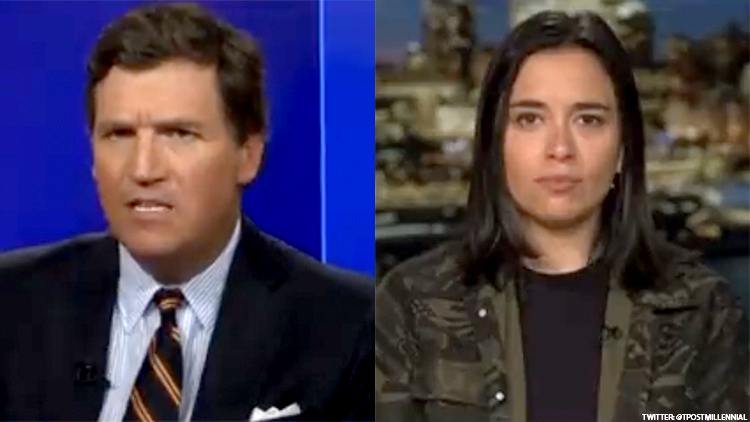
Grindr’s incoming CEO is facing criticism on social media less than a month after he was appointed to helm the popular queer social networking app. On Tuesday, a Twitter user compiled a thread of tweets from George Arison voicing his opinions about conservative politicians. “I am a conservative & agree with some Trump policies,” one of his tweets from 2020 reads; Arison also suggested in a tweet earlier this year that Virginia Governor Glenn Youngkin, who recently made headlines for rolling back rights for LGBTQ kids, should run for president. His comments prompted a backlash on Twitter, with some users saying they were going to delete the app and urging others to do so as well.
Grindr, which is expected to go public by the end of the year in a deal that values the company at $2.1 billion, is one of the most popular queer social networking apps in the world, with more than 11 million users, Bloomberg reports. But the app has had a checkered history with its users, its owners, and security issues that have gotten it into hot water with the U.S. government.
A Grindr spokesperson tells TIME, “George is an out gay man, proudly married to his husband and the father of two children. George is passionate about fighting for the rights and freedoms of LGBTQ people around the world.” For many users, however, Arison’s sexual orientation does not negate even qualified support for politicians who hold views that are in opposition to those rights and freedoms.
George Arison’s background and political tweets
Arison is a gay businessman and the founder and former CEO of Shift Technologies, an online used car marketplace. He has been on the board of directors of Grindr since May and was named its new CEO on Sept. 14, taking over from the outgoing leader Jeff Bonforte. Less than a month later, on Oct. 11, a Twitter user amplified several of Arison’s past tweets about conservative politicians. “Your new Grindr CEO, folks,” the user’s quote-tweet thread reads over multiple tweets published by Arison. His tweets mentioned Mitt Romney, Mitch McConnell, Ron DeSantis, and Youngkin. Some tweets were more favorable (“Imagine if Romney were president right now instead of Trump”) while others commented more on certain politicians’ effictiveness (you “can’t not admire how good [McConnell] is at achieving what he wants”). He also said he agrees with some of Donald Trump’s policies, though he stayed mum on which ones specifically.
“FYI I am a conservative & agree with some Trump policies,” Arison’s tweet reads. “I think at least 10% of Republican voters and 1/3 of moderate independents are the same (like some Trump policies, can’t stand having him in office). So Dems need a nominee who can tap into this electoral spectrum.”
In 2020, he threw his support behind former New York City mayor Michael Bloomberg as “the only candidate who has any shot at beating Trump.” Bloomberg has faced criticism for a transphobic remark made during a business conference in 2019. The former New York City mayor made disparaging remarks about trans people and trans rights, saying in a now-deleted YouTube video, “If your conversation during a presidential election is about some guy wearing a dress and whether he, she, or it can go to the locker room with their daughter, that’s not a winning formula for most people.”
Despite voicing some agreement with Trump, Arison does not present himself as a Trump supporter overall, as he also tweeted that he views Trump “as everything our Founders feared the most.”
Grindr users on the Internet respond
Some Twitter users were upset when the tweets surfaced. Diana Adams, an activist and attorney, took to Twitter to condemn the incoming CEO and the company’s past actions. “New CEO of @grindr is a conservative tool who ‘agrees with some Trump policies,’” their first tweet read. “Do you feel safe sharing personal data on that app with someone who clearly doesn’t care much about LGBTQ rights/sexual freedom? Have any doubt he wouldn’t sell your data or out you??” They ended the tweet with the hashtag #DeleteGrindr. The tweet references the fact that Grindr collects personal information and shares it with third-party companies, but they do give users the ability to opt out.
In the second tweet, Adams reminded their followers that homosexuality is illegal in many countries around the world and that “Grindr sharing data with local officials WILL put people’s lives in danger.” These tweets were echoed by others who expressed disappointment.
Grindr’s bumpy past
Arison is not the first executive at the company to cause consternation behind the scenes since it was founded in 2009. A series of controversies began in 2018 when the app’s founder, Joel Simkai, sold Grindr to the Chinese gaming company Kunlun Tech, giving up his title as CEO as Scott Chen stepped in. Employees at INTO, Grindr’s editorial website, were made aware of a comment Chen made on his personal Facebook account, saying that “marriage is a holy matrimony between a man and a woman.” He commented under INTO’s article to clarify that he is an advocate for the LGBTQ community and supports same-sex marriage but that he had written his previous comment “based on my own personal experience.”
In 2018, the company faced two data security concerns. In March 2018, NBC released a report suggesting that Grindr had security flaws that put millions of users’ personal data at risk, and in April, Buzzfeed News reported that Grindr was sharing users’ HIV statuses with two companies (a practice it later stopped). The reporters spoke with the chief security officer, who said Grindr was sharing the data with the two companies because the analytics companies provided, as Buzzfeed paraphrased it, “tools to help apps like Grindr function better.”
Given that Kunlun is based in Beijing, national security concerns were raised by the Committee on Foreign Investment in the United States (CFIUS). The concerns included that user data on the app could be used by the Chinese government after it was reported that engineers in Beijing were given access to personal data. CFIUS then ordered Kunlun to sell Grindr to a venture capital firm in the United States; in June 2020, Grindr sold to San Vicente Acquisition. Throughout ownership changes, users have raised ongoing concerns about racist and discriminatory messaging between users on the app and detrimental effects on mental health.
There have also been concerns about dating apps across the board, including Grindr, not having good enough age verification to keep underage users off the app. A spokesperson told the Atlantic, “We would love partnership, specifically from Apple and Google, to develop better age gate technology that respects the privacy of users while also enhancing safety.”
The company looks toward an uncertain future
Arison is set to begin his tenure as CEO on Oct. 19, just as the company is preparing to go public. A date has not yet been set for the initial public offering, but a deal with Tiga Acquisition Corp, a special-purpose acquisition company, is expected to be finalized by the end of the year.
Despite the company’s continued success, the blemishes of its past are impossible to erase. The company garnered some goodwill with the announcement in May that it will be covering the cost of gender-affirming surgery for employees. But Grindr is up against stiff competition as its user base is a fraction of the 100 million combined users that the industry’s dominant player, Match Group, counts across apps including Tinder, Hinge, and Bumble (and its platform for queer men, Chappy). A clearer picture of the company’s future may come into view once it goes public, when it is no longer just accountable to its users but to its shareholders, as well.
More Must-Read Stories From TIME








